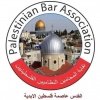Consultancy to support the development Referral network
Job Description
This job listing expired on 2014-07-31
Browse Latest Jobs
when applying to a job online , never give your
credit card or bank account information,
or perform any sort of monetary transaction to a prospective employer. For your privacy and protection:
Latests Jobs By
Humanity & Inclusion Palestine
Job Title
Date Posted
Physiotherapist
Gaza Strip
5, Jul
Rehabilitation Officer
Gaza Strip
4, Jul
MDR Supervisor
Gaza Strip
4, Jul
Psycho-Social Worker
Gaza Strip
1, Jul
Psychologist
Gaza Strip
1, Jul
Atlas Project Manager
Gaza Strip
30, Jun
Humanitarian Access & Security Officer
Gaza Strip
20, May
Procurement & Facility Supervisor
Gaza Strip
15, May






